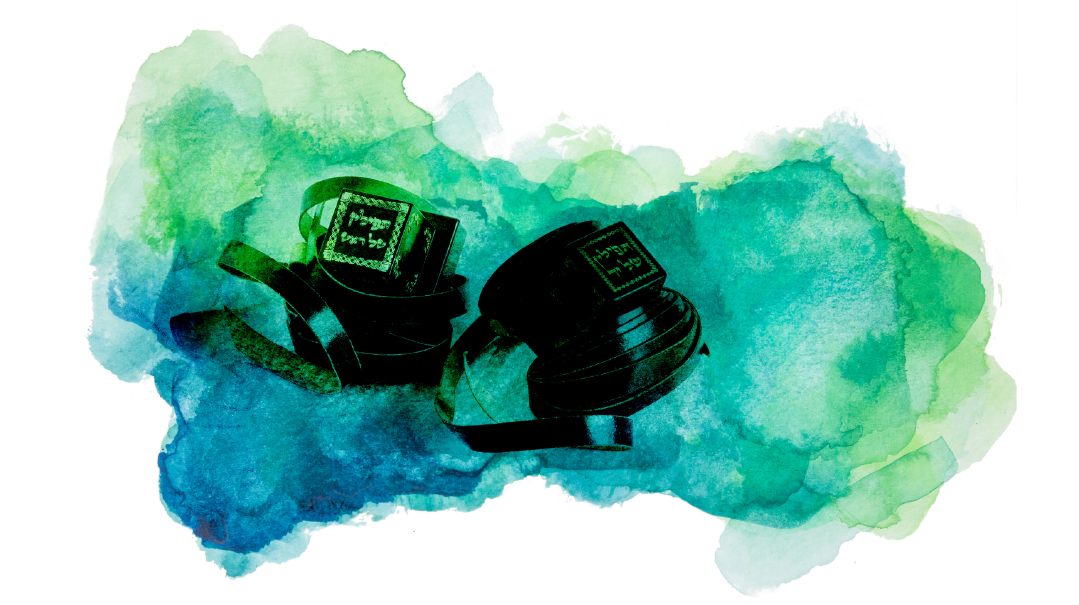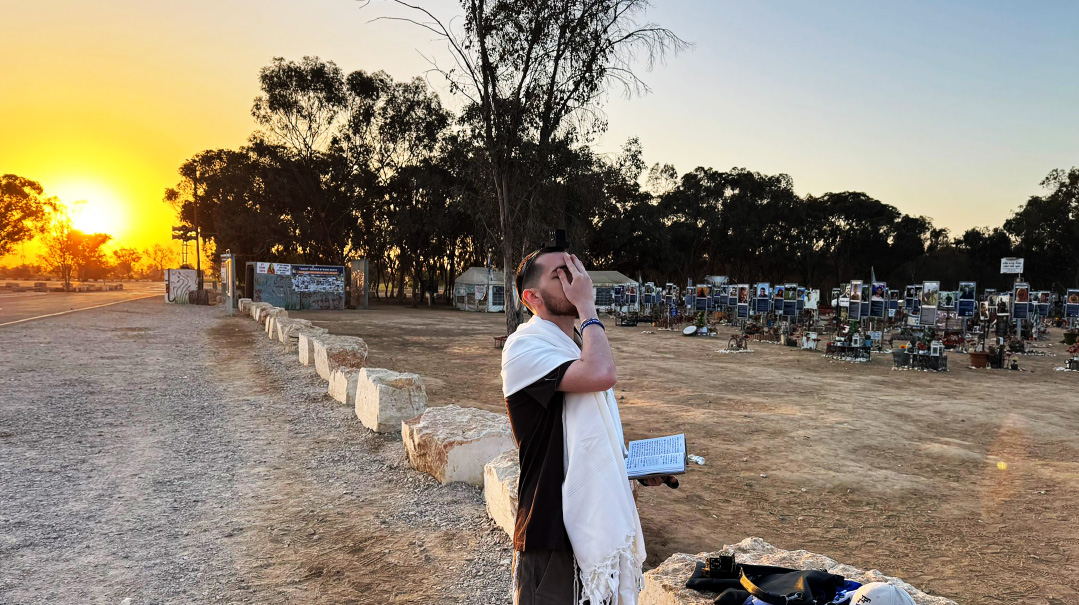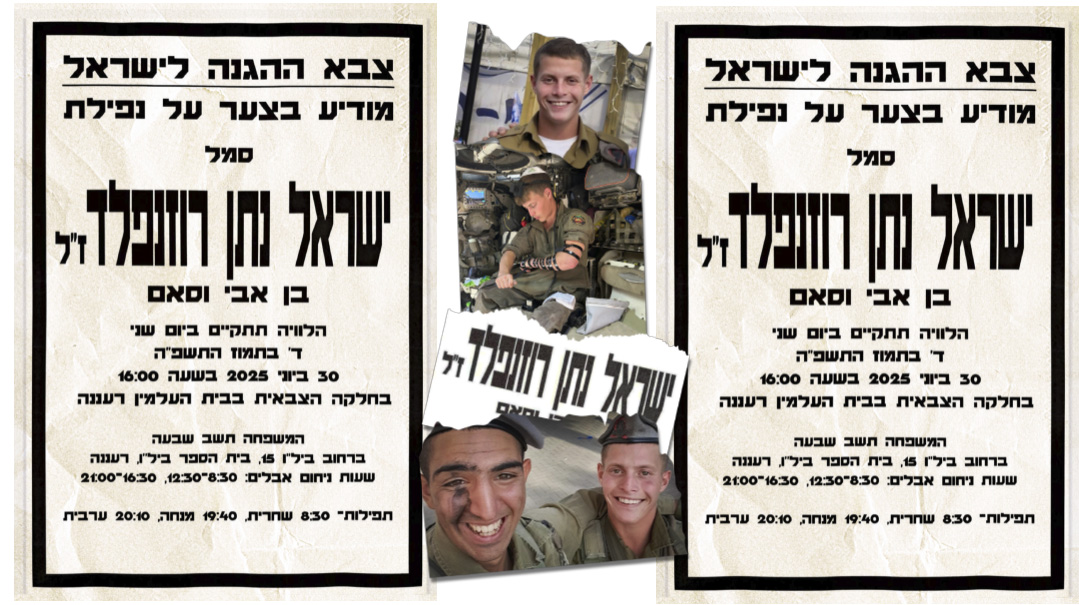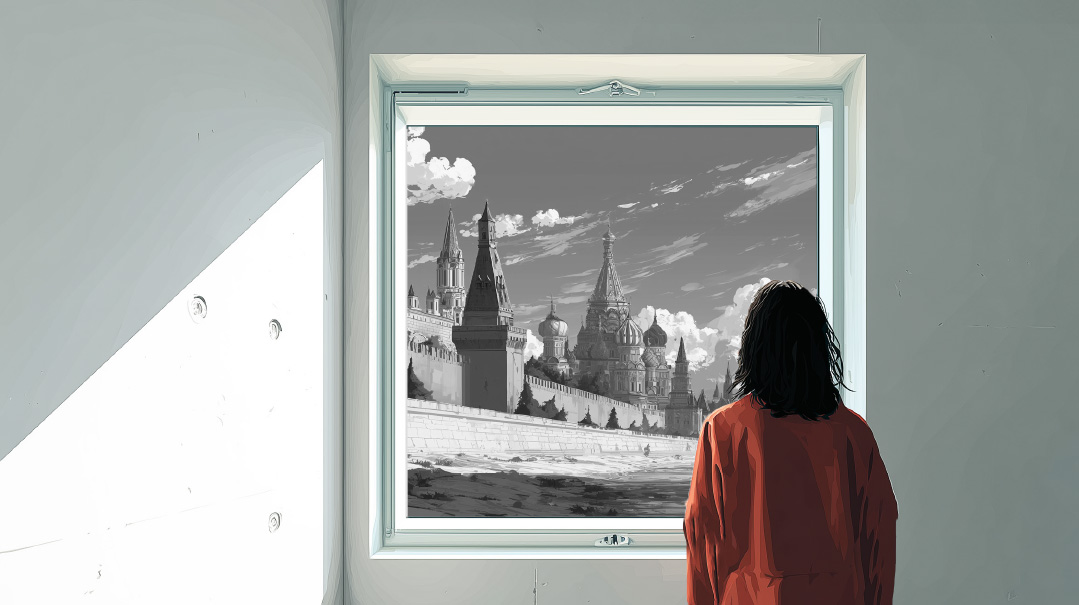Armed
| November 7, 2023“This has the power to bring deliverance from the current hardships in peace”

As told to Miriam Bodner by Yitzchok Achter
ON
Monday, Isru Chag, I sat on the subway with a group of friends, headed to Manhattan. What struck me immediately was the cold and the silence. Or perhaps it was the tension? The passengers seemed frozen in place. The news of the war in Israel had stretched its hand across the ocean to hold us in its icy grip.
But that was precisely why I was sitting on the subway.
It was a mission, really. We were going to find Jews to put tefillin on. I sat back in my seat and wondered if the air had been this cold and icy in 1967. The Six Day War had begun in June, but surely the fear they felt must have made it as cold as it was now. As they dug trenches and organized troops, were their thoughts as wild as ours are now?
The train rode along with its usual sway, lulling me to drowsiness. When it suddenly stopped, I almost didn’t feel it.
“Train stopped… no longer running….” People were whispering.
We followed the crowds off the train and assessed the situation. “We must find out if it’s temporary,” my colleague said furtively. “It would be best to reach Manhattan sooner rather than later.”
The crowd was thick on the platforms outside the trains. We started looking for a different train, and then we saw one man walking calmly on the platform. Judging by his uniform, I could tell he was an MTA employee of sorts. I looked at my friend, and we both understood that the best option would be to approach him and ask for directions.
Something about the scene, the positioning of the speaker and the crowd, reminded me of a video I’d seen… I shut my eyes, trying to remember, and then opened them to look for my friends, but instead I saw scenes from the video. The crowd around me had changed, and I was now surrounded by Jewish men and women. The colors were from a different, older world, and when I faced forward, the man up front speaking looked familiar.
It was the Lubavitcher Rebbe.
A white banner behind him read “Lag B’omer 5727” in Hebrew. His speech rang with confidence as he assured Israel of Hashem’s protection from the threat of war. The farbrengen was well known to me, since it was then that the Lubavitcher Rebbe had begun his tefillin campaign. When you help someone fulfill the mitzvah of tefillin, I knew, it is considered in the merit of another Jew as though he himself put on tefillin.
“Great efforts should be made to encourage as many Jews as possible to lay tefillin,” the Lubavitcher Rebbe’s voice echoed. “This has the power to bring deliverance from the current hardships in peace.”
Oops! We could not locate your form.







